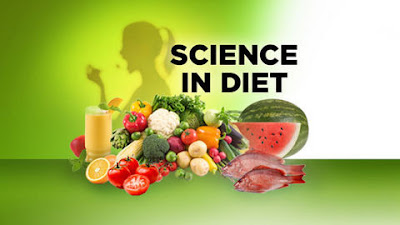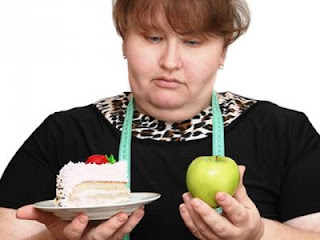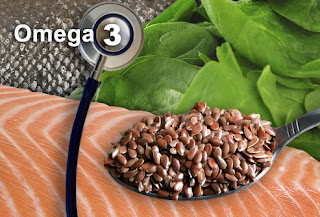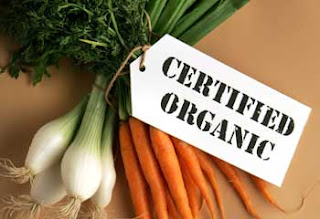From milk to solid food:
During the first months of life, a child is dependent on milk supply. Breastfeeding is the best food for infants. Breastfeeding is the most complete diet that can suits you a baby. The milk is always at hand and at the correct temperature. Moreover, there is everything what your baby needs: antibodies, minerals, proteins, carbohydrates, fats, vitamins and other ingredients.Infants Milk:
To obtain the best possible alternative to breast milk to offer is infant milk. The fact is derived from scientific knowledge about the nutritional needs of the young child. The composition of infant milk is very similar to breastfeeding. However, it sometimes contains more nutritional value. This is done so because the baby milk digests less than breastfeeding. This gives the infant still enough nutrients.If your child is bottle-fed, it's best to start with ordinary infant formulas. At the clinic you get all the information about how much food your baby needs. Sometimes even after a clear schedule, it is best to follow the needs of your child. The baby wants one at a time over the other.
Some babies will again prefer some more little bits. Most newborn babies ask themselves every two or three hours to feed. If you have a sleeping cup or extremely satisfied baby, keep in mind that you still have to give six to eight feedings per 24 hours.
Types of infant milk:
There are three types of baby milk, each of which conforms to precise three periods:- Prime-age milk (infant milk): from birth to four or up to six months, periods when the baby may get only infant milk if he does not breastfeeding.
- Second-age milk (follow-on milk): transitional period which coincides with the time when the baby gets other foods then get milk, from four to six months to nine to twelve months.
- Third-age milk (growth milk): from one to three years, a period in which the child has a varied diet and gets virtually the same as eats by adults.
Cow's milk allergy:
Most artificial infant milk is cow's milk. Cow's milk allergy is the most common food allergy in infants. If your baby suffers from colic or diarrhea that does not automatically mean that it is allergic to cow's milk. Each baby has ever suffered from pimples or should one go spit. If you think something is wrong with yourbaby, always consult your doctor or clinic.There is a treatment based on the omission of cow's milk protein from the diet. Ingredients that can provoke allergic reactions are called allergens. A diet that contains very few allergens is called hypoallergenic. There is special hypoallergenic milk for the babies who suffer with cow's milk allergy.
Previously cow's milk allergy diet based on soy prescribed. The Polish people come back, because many children with cow's milk allergy also allergic to soy can develop. Bottle feeding soy-based is therefore strongly discouraged.
Weaning:
From four months, you can a start by giving re-feeding. That usually consists of small snacks of fruit or vegetables. Choose a type and give it three days each haunted. So you can see if a child might be allergic. The supplement is best done with a plastic spoon as the size of a teaspoon.Ready-to-eat foods:
Everyone knows the little jars of food for babies and toddlers. They are complete meals, fruit snacks or desserts and age is listed there. Just so you know from right what age the food is suitable. You do not hold Very strict at this age. There are different brands of baby food. In one jar can sit some more small pieces than in the other.Start on time with the food pieces in there and give your child often different flavors. Potty Power is perhaps relatively expensive, but it has the necessary benefits. Especially hygiene and ease of use are top of the list. In the Britain, ready-made baby food of very high quality is available. Doctors and dietitians check strand or the amount of nutrients that meet your baby's needs.
In the preparation of the food it also necessary to check that weather it stored almost all vitamins. The jars must meet stringent requirements in terms of such preservatives and pesticides. The Commodities Act has regulated what is and is not allowed to sit in the jars.
Incoming Searching Terms and Tags:
- when to start your baby on baby food
- make your baby food
- how food reaches your baby
- best food for your baby & toddler
- best food to start your baby on
From milk to solid food:
During the first months of life, a child is dependent on milk supply. Breastfeeding is the best food for infants. Breastfeeding is the most complete diet that can suits you a baby. The milk is always at hand and at the correct temperature. Moreover, there is everything what your baby needs: antibodies, minerals, proteins, carbohydrates, fats, vitamins and other ingredients.Infants Milk:
To obtain the best possible alternative to breast milk to offer is infant milk. The fact is derived from scientific knowledge about the nutritional needs of the young child. The composition of infant milk is very similar to breastfeeding. However, it sometimes contains more nutritional value. This is done so because the baby milk digests less than breastfeeding. This gives the infant still enough nutrients.If your child is bottle-fed, it's best to start with ordinary infant formulas. At the clinic you get all the information about how much food your baby needs. Sometimes even after a clear schedule, it is best to follow the needs of your child. The baby wants one at a time over the other.
Some babies will again prefer some more little bits. Most newborn babies ask themselves every two or three hours to feed. If you have a sleeping cup or extremely satisfied baby, keep in mind that you still have to give six to eight feedings per 24 hours.
Types of infant milk:
There are three types of baby milk, each of which conforms to precise three periods:- Prime-age milk (infant milk): from birth to four or up to six months, periods when the baby may get only infant milk if he does not breastfeeding.
- Second-age milk (follow-on milk): transitional period which coincides with the time when the baby gets other foods then get milk, from four to six months to nine to twelve months.
- Third-age milk (growth milk): from one to three years, a period in which the child has a varied diet and gets virtually the same as eats by adults.
Cow's milk allergy:
Most artificial infant milk is cow's milk. Cow's milk allergy is the most common food allergy in infants. If your baby suffers from colic or diarrhea that does not automatically mean that it is allergic to cow's milk. Each baby has ever suffered from pimples or should one go spit. If you think something is wrong with yourbaby, always consult your doctor or clinic.There is a treatment based on the omission of cow's milk protein from the diet. Ingredients that can provoke allergic reactions are called allergens. A diet that contains very few allergens is called hypoallergenic. There is special hypoallergenic milk for the babies who suffer with cow's milk allergy.
Previously cow's milk allergy diet based on soy prescribed. The Polish people come back, because many children with cow's milk allergy also allergic to soy can develop. Bottle feeding soy-based is therefore strongly discouraged.
Weaning:
From four months, you can a start by giving re-feeding. That usually consists of small snacks of fruit or vegetables. Choose a type and give it three days each haunted. So you can see if a child might be allergic. The supplement is best done with a plastic spoon as the size of a teaspoon.Ready-to-eat foods:
Everyone knows the little jars of food for babies and toddlers. They are complete meals, fruit snacks or desserts and age is listed there. Just so you know from right what age the food is suitable. You do not hold Very strict at this age. There are different brands of baby food. In one jar can sit some more small pieces than in the other.Start on time with the food pieces in there and give your child often different flavors. Potty Power is perhaps relatively expensive, but it has the necessary benefits. Especially hygiene and ease of use are top of the list. In the Britain, ready-made baby food of very high quality is available. Doctors and dietitians check strand or the amount of nutrients that meet your baby's needs.
In the preparation of the food it also necessary to check that weather it stored almost all vitamins. The jars must meet stringent requirements in terms of such preservatives and pesticides. The Commodities Act has regulated what is and is not allowed to sit in the jars.
Incoming Searching Terms and Tags:
- when to start your baby on baby food
- make your baby food
- how food reaches your baby
- best food for your baby & toddler
- best food to start your baby on


































